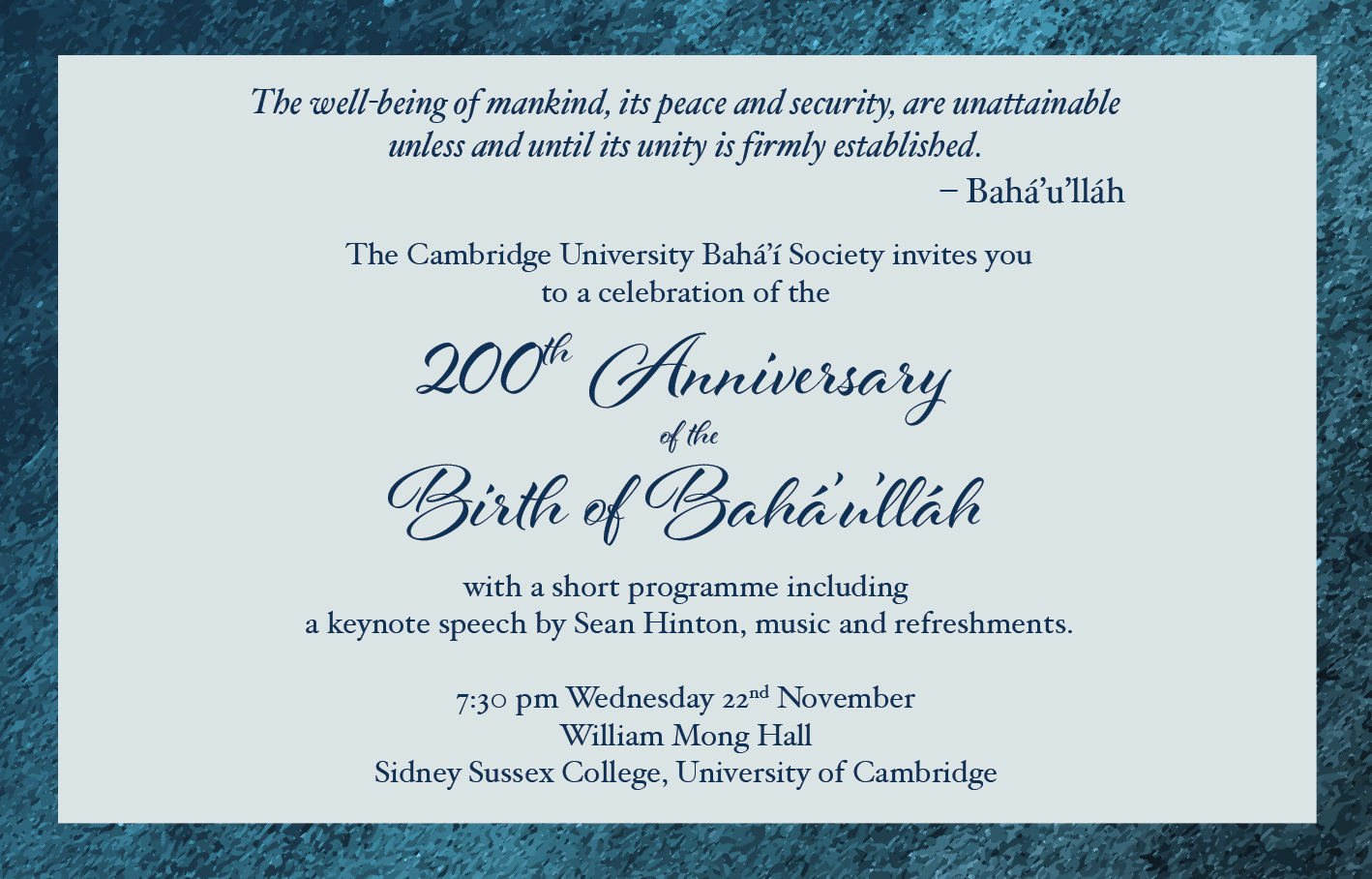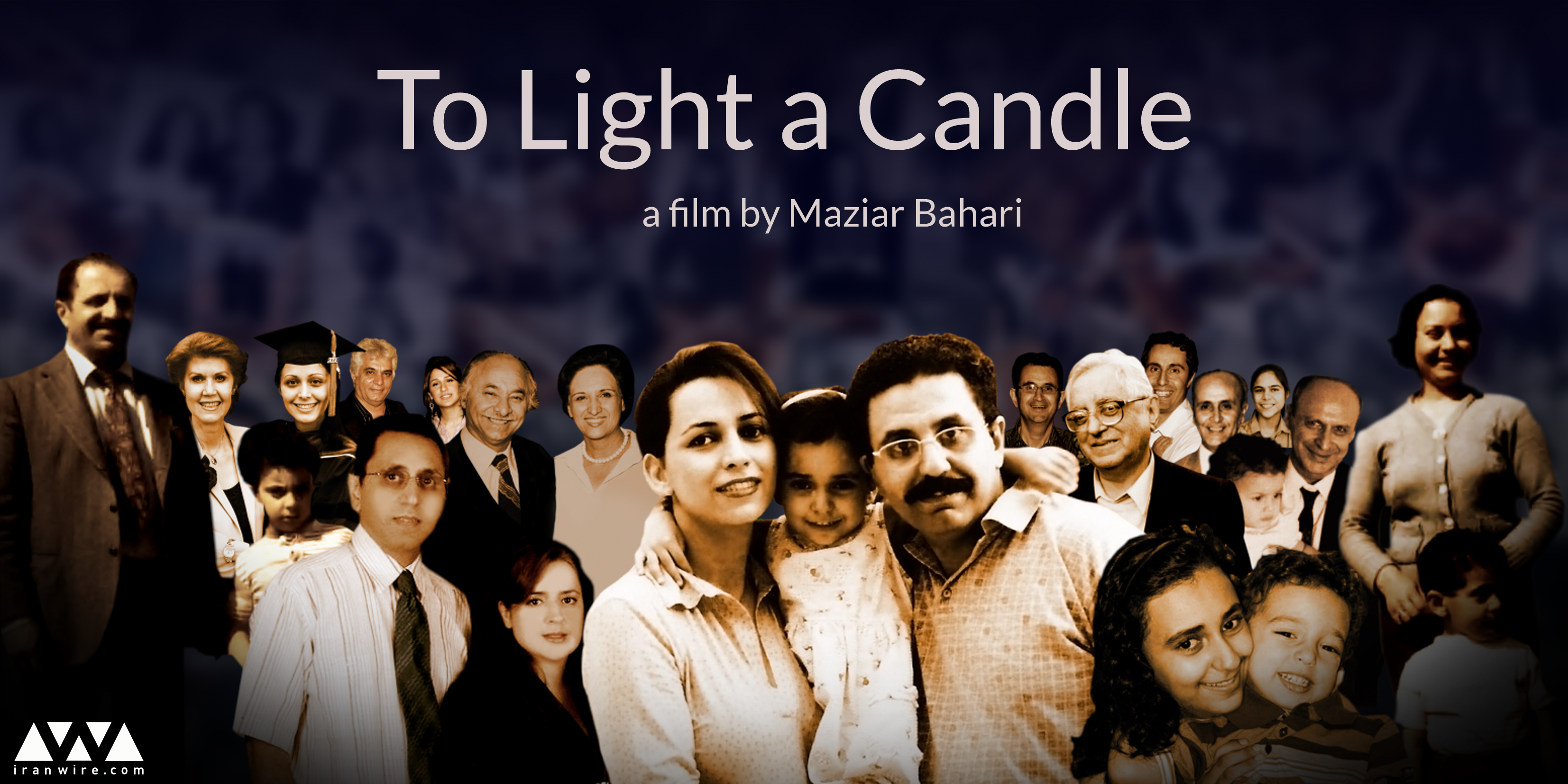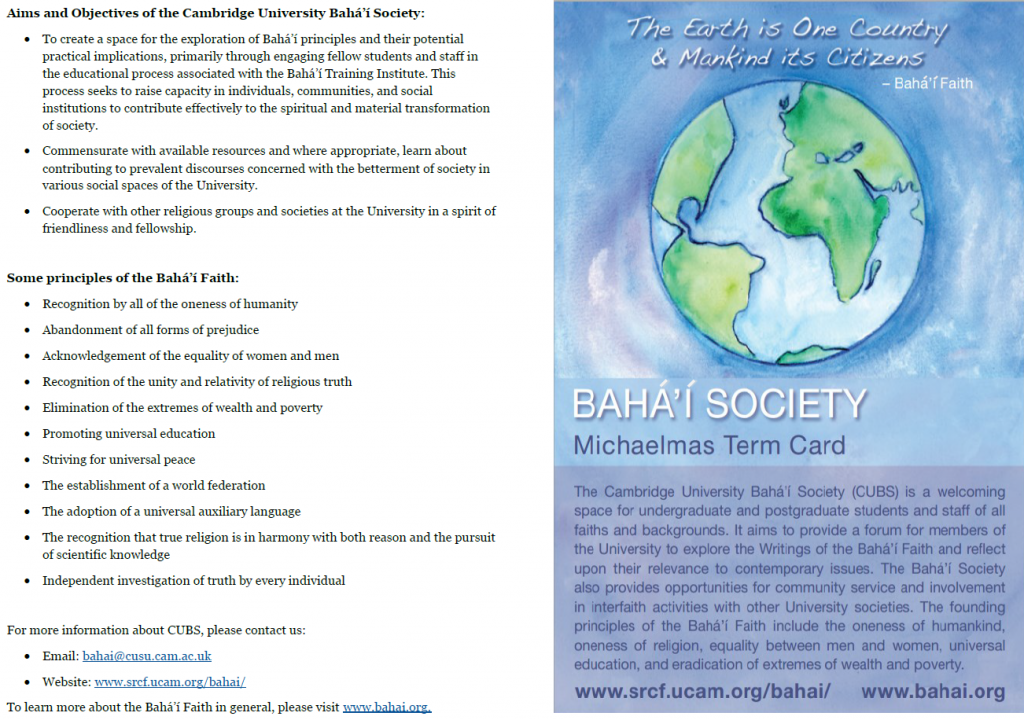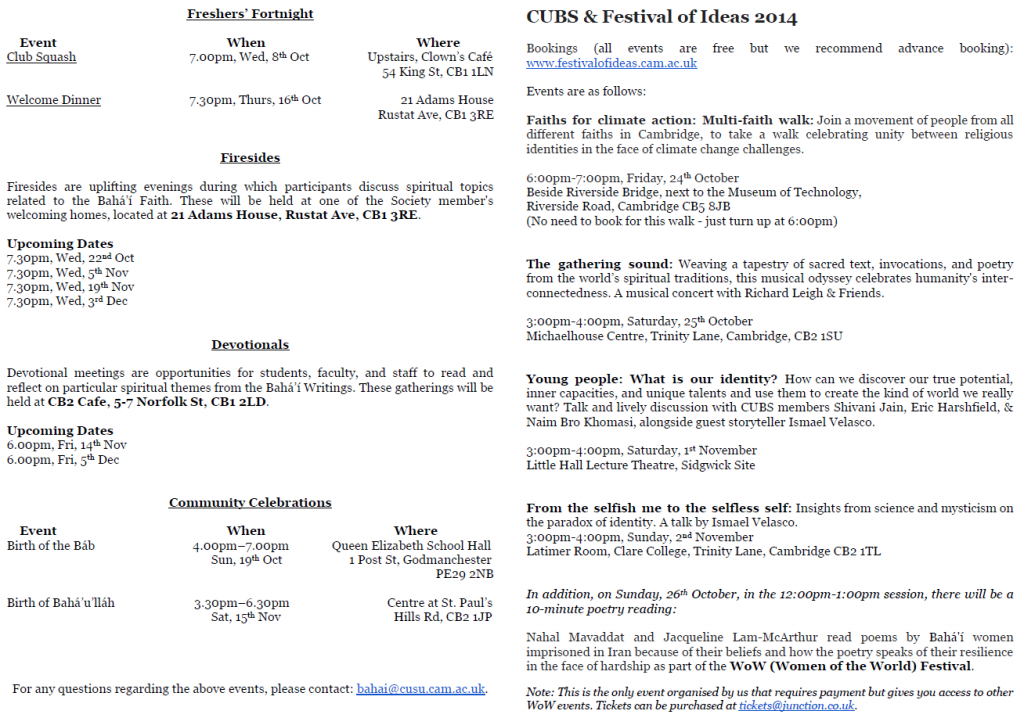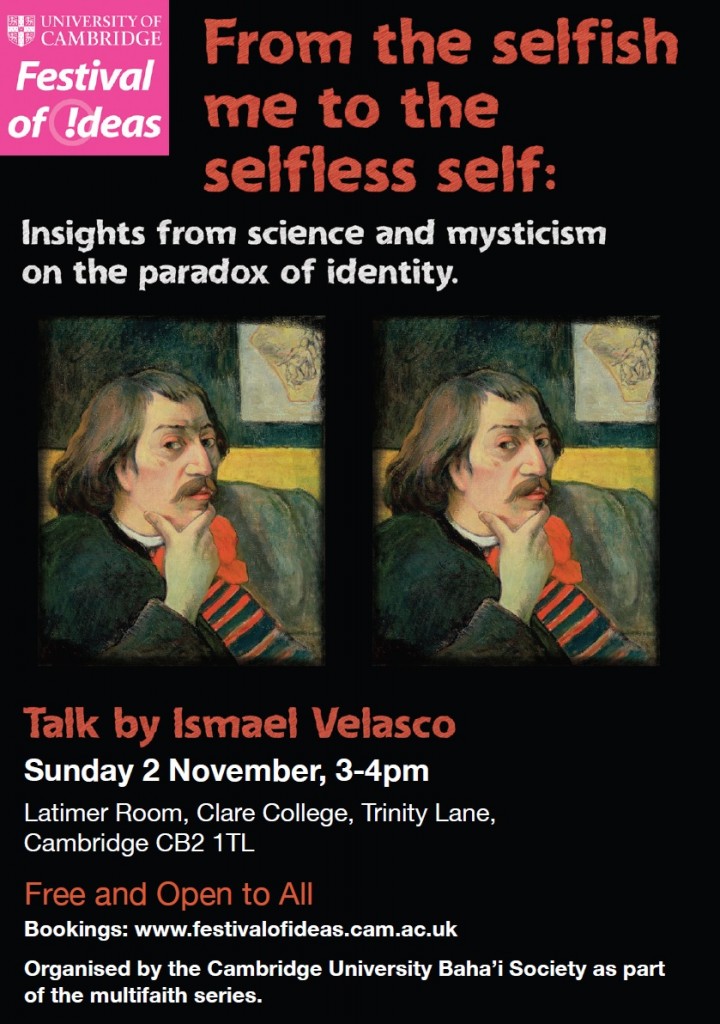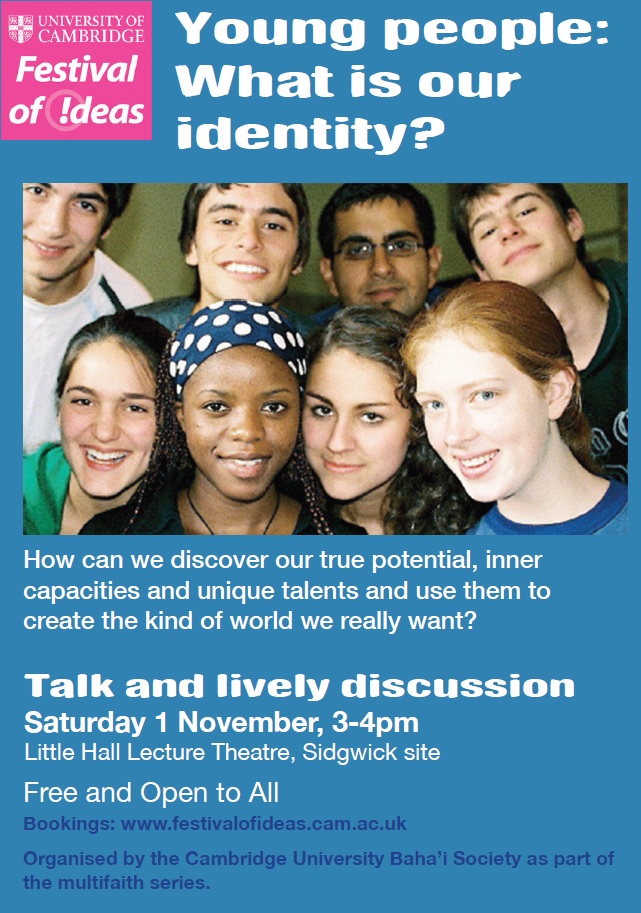The Cambridge University Bahá’í society has organised two events this year as part of the Cambridge University Festival of Ideas. Both events will take place on Friday, 19 October 2018.
Rethinking Governance (6-7pm)
Sean Hinton discusses new conceptual frameworks for governance that give expression to individual freedom and embody our highest aspirations.
Sean Hinton is Director of the Economic Advancement Program for the Open Society Foundations, and CEO of the Soros Economic Development Fund. He is a graduate of Cambridge University and MIT. He has served as Mongolia’s first honorary consul-general in Australia, having worked extensively in China and Mongolia. Sean has lectured around the world, most recently at Oxford University and at Stanford University for the Global Speaker Series. He is also on the international advisory board of the Bahá’í Chair for World Peace at the University of Maryland.
An end to inequality? (8-9pm)
The assumption that human beings are primarily self-interested, and that our behaviour reveals our underlying preferences, has driven the progress of economics as a discipline – and thus many of the economic policies leading to the exacerbation of inequality. Professor Nava Ashraf will talk about recent research in economics questioning this assumption, and drawing it closer to what many religious and philosophical thinkers have understood about human nature – a radical change with strong implications for economic inequality, justice and prosperity. In her talk she will draw on Bahá’í perspectives on economics.
Nava Ashraf is Professor of Economics at the London School of Economics and Political Science, and Research Director of the Marshall Institute. She has been awarded the Queen Elizabeth II Golden Jubilee Medal for Service, and was the youngest ever recipient of the Order of British Columbia.
Both talks will take place in the following venue:
Hicks Room
University Centre
Granta Place, Mill Lane
Cambridge CB2 1RU
The talks are free and open to all, but please register using the links above so that we know how many people to expect at each talk.



